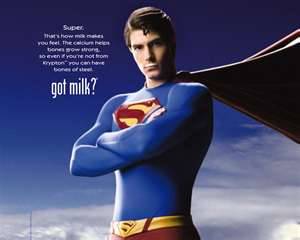SOME MILK FOR THOUGHT
Learning about the history of words can be as fascinating as Robert Landon’s quest for truth in “The Da Vinci Code.” Just as rumors and mythshave a life of their own, words do as well, changing with the advent of technology, religious precepts and politics. In her book, “Man Made God,” Barbara G. Walker traces how matriarchal cultures have left their mark on the evolution of words, some of which are surprising.
By derivation, for example, the word “mathematics” meant “Mother-wisdom”.
“ …men once thought that women’s ability to give birth was related to their superior skill in measuring and figuring. They even imagined that if they could master those skills for themselves, they too could give birth.” (Walker, pg. 67)
The word “curiae” (clans) was the name of one of the Sabine women in early Rome, that same “curia” to which to which Vatican Popes belong. “Ma-Ma” and all its variations of Ma, Mah, and Maa from Russia to Samoa and across time from the tongues of Egypt, Babylon, India and the Americas, all related to the Divine Mother and the magical powers of mother’s milk (Walker, pg. 57).
The phrase to describe divine powers, “all that has been, that is, and that will be,” is one that was carved in stone at the temple of the Great Mother at Sais long before Christianity was borne.

(California Milk Processor Board)
Over time, the more peaceful, matriarchal societies were overtaken by patriarchal ones and that has had a profound effect on the course of human history.
“The maternal totemic clan was by far the most successful form that human association has assumed – it may indeed be said that is has been the one successful one.” (Anthropologist Robert Briffault quoted in “Man Made God,” pg. 70)
Whether or not one agrees with Robert Briffault, the traces of matriarchal societies of old still exist in our language. As we become aware of that influence and those more peaceful times, we may revive more than our appreciation for the origin of words in our language. We may begin to respect the healing and nurturing thoughts these words express.